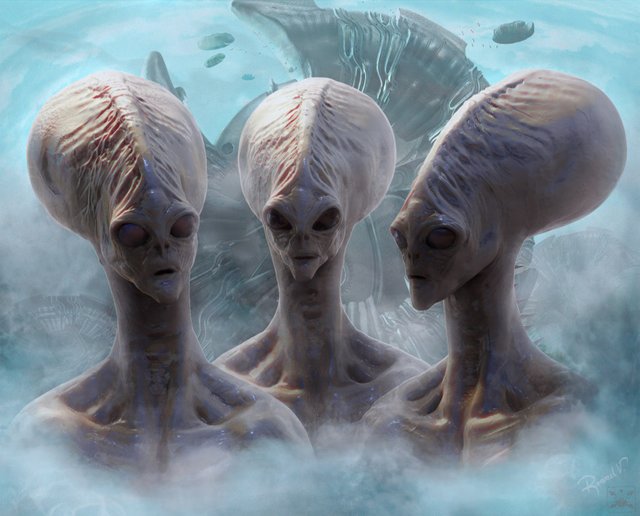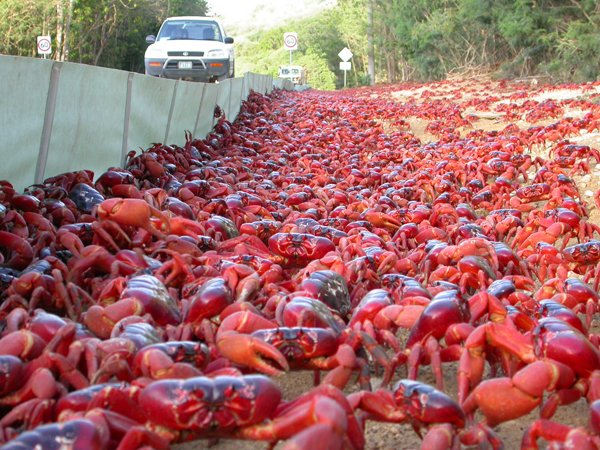Why is better to settle a desert planet.
As usual, I start apologizing for my English: I'm not a native speaker. This post, is about NASA announcing 7 new rock based exoplanets, of which 3 could host life.
Now, is not about discussing technical difficulties about reaching those planets. This is the NASA's job. What we should think is, if we really want to land on a planet hosting life, or if it's better for us to land on a planet which is a complete desert.
Most of people is very excited about the idea of discovering life. So the first target would be the planet with life. Unfortunately, is not that easy at is seems.
If we think to humans as entities "only made of human", meaning each and every cell of us is a human cell, then maybe this makes sense. You land in one planet, where you have life, and you are the only creature landing.
The problem is not the bacteria or creatures which could be carried into the starship itself (albeit bacteria are a terrible problem also into the ISS, where they are growing producing the terrible stink all astronauts are reporting) , problem which could be avoided "just" having some UV based sterilization before of stepping any foot on the new planet.
The problem is, humans are NOT made of human cells. Ok, sure: we are, too. There are many human cells in our bodies. But, they are not the majority. Since bacteria are very little, they outnumber the amount of human cells about 1:10 to 1:20, depending if we consider living bacteria the ones (like mitochondria) which are embedded INTO our cells.
Let's focus on the ones which are "coming from mother Earth".
Just the gut flora we use to process food, by example, is made of thousand of species, and outnumbers alone the whole population of "human" cells more or less of 5 to 1. Without of them, eating is almost useless for us: without the gut flora, you may eat as much you like, there is very little your body will intake.
Now, landing in a planet with a different set of bacteria, we have some chances:
- Alien bacteria cannot enter the human body, and vice versa. It is very unclear how this may happen when the planet is able to host human life, but there is no limit to the unknown. In such a care, we are fine. Some black magic is making the local life and our life unable to biologically interact, and that's it.
- Alien bacteria are better fitting our bodies , and they are able to colonize it, but our bacteria aren't stronger than the local ones, gives the environment is not good for them.
- Our bacteria can spread around in the alien planet, being somehow stronger, but the alien bacteria cannot enter the human body.
- Both our bacteria can live in the planet, and the alien bacteria can live in the human body. Some of Alien Bacteria will enter our body, some of our bacteria will end living in the alien planet.
The first cance, 1) is the one we imagine when we imagine space colonization. Being used to colonize only different area of the Earth, we consider the settler as a single entity, not much "exchanging" life with the local place. So this would be the lucky chance. It is a little unlikely, since alien species are an issue even on Earth, when we discuss of different continent. How such a rock-solid separation of life could work, is not likely to image. Also because, if our form of life cannot interact, still we expect the settlers able to breath on this planet, or even to grow food. And then we must eat it, which means, alien bacteria there would end inside the human body.
So the "usual" Hollywood scenario is a little unlikely. Until the planet is impossible settle without life support, this is a very unlikely chance.
The second chance is the most alarming. Which place those bacteria would have in our body? Any change in our bacteriome is leading to dramatic changes on our body. Human babies are able to get oxygen enough to the huge brain we have, just because a retrovirus (not even a bacteria) infected our specie, then entered the genome, made the placenta a huge cell with lot of nuclei, then making the placental microbiome a place to grow a huge brain.
If this is the effect of a single retrovirus (many of them infected our species and are now stable part of our genome) , you can easily image to have a change of microbiome is not that predictable. Mitochondria are responsible of huge part in the process to produce energy into cells: if another bacteria enters the cells and take its role, we have no idea what could happen. Maybe it will produce more energy. maybe less. Maybe in a different way, maybe using different ingredients.
If we imagine the human body able to survive to this, which is very unlikely because our mitochondria are very , very fitting our chemistry, the kind of human we could get changing is not even predictable; most likely would be something we wouldn't call "human" anymore.

When we imagine to change the gut flora with something else, we should start to imagine what else we could eat: a different gut flora could lead (even in the unlikely case its output would be the same) to a massive change in the homeostatic balance of food intake.
The gut flora is suspected to be involved in Parkinson, Schizophrenia and others: https://www.ncbi.nlm.nih.gov/pmc/articles/PMC3983973/ ; https://www.parkinsons.org.uk/news/1-december-2016/could-gut-bacteria-hold-key-parkinsons-treatments ; https://www.ncbi.nlm.nih.gov/pmc/articles/PMC4437570/
Option 3: our bacteria are stronger than the alien ones, and they can survive the alien planet better than the local ones. In such a case... well, we know. We have seen that in Australia when we introduced new species in that habitat.

In the most lucky case, this would simply destroy the local population, generating an uncontrolled plague of our bacteria everywhere. Of course we cannot estimate the effect because we have no idea of the alien ecosystem: anyhow, the impact would be most likely devastating. As a result, we would land on a planet we can live in, but in a few years it could render into a desert, or worst: climate change if our bacteria are able to kill local plants (or whatever they have there) and so and so.
The next chance, the number 4, is a bare combination of both. Sure, when we land in the planet we are humans and they are aliens. When we start living there, we start to be something different than bare humans. Plus, Aliens will start changing because of us.
So we have both the risks: the one of having astronauts which are leaving the Earth being human and coming back being "something different", whatever it means, hopefully reversible, and the chance of the Alien life becoming something which never happened without us.
The very point which is not clear to many is that our body is not "living on Earth": part of Earth is living into us, so when we say we are a part of the ecosystem, we don't mean something like "we live here": we are literally part of this ecosystem, meaning that, lot of things (bacteria, retroviruses, viruses) are piece of our bodies.
When we ask ourselves if we can survive in another planet, we are not just asking if the planet could "host" us: we are asking if the alien planet can be HOSTED into the human body. In the case the alien place has no bacteria to give to our bodies, then the issue is how the next generation, born into an ecosystem without the bacteria ve need to exist, may survive.
So the option where there is no exchange is not that good as well: the question "if the humans can live elsewhere our of earth" is not only about how good alien planet are. The issue is the same of the fish when are out of water: it could happen the human specie NEEDS the planet earth, because of the bacteriome. It could happen that this is the only planet we can actually grow and grow babies, just because this is the only planet with the same microbiome which generated us.
Is such a case, the only kind of planet we could be able to settle are desert planets, where we bring our bacteriome, hoping we can terraform them enough to make all the bacteria we need to grow, so that the next generation can inherit them and babies are able to ingest them.
If not, we could consider the chance a very , very, very strong bound will keep us here. The very need we have of a bacterial complete ecosystem. And we all NEED the microbiome.